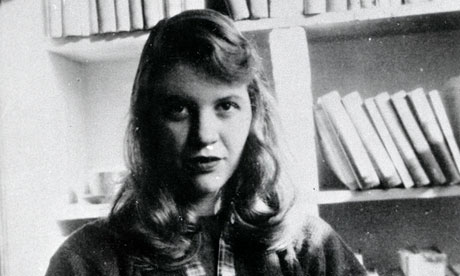
Sylvia Plath’s suicide casts a dark shadow over her work, but her true legacy is her literary greatness.
Sylvia Plath, who died 50 years ago this month, remains as well-known for her deeply personal and honest works as for the tragic suicide that ended her life at the age of 30.
“Her legacy is one of a powerful young poet who had already done masterful work and had great potential and left us too early,” said English professor Martha Nell Smith.
But Smith, whose work focuses on American women’s poetry — specifically 19th century poet Emily Dickinson — said people should look beyond Plath’s biography.
“I would encourage everyone to get beyond the tragic life and actually look at her words, and think about those,” she said.
Plath had published a collection of poetry, The Colossus, and a critically acclaimed semi-autobiographical novel, The Bell Jar, before she committed suicide on Feb. 11, 1963, leaving behind two young children. Rather than considering her work, many remember her for her troubled marriage to poet Ted Hughes and the tormented view of herself that Plath showed through her intensely confessional writing.
Lindsay Bernal, an English professor and the academic coordinator for the MFA program in creative writing at this university, said Plath left behind a great legacy, especially in Ariel, a collection of Plath’s poetry published two years after her death and posthumously edited by Hughes.
“I’m not sure what contemporary poetry would be like without that book,” Bernal said. “Plath paved the way for female poets, particularly, allowing ambivalence and anger and sorrow and joy and love to enter poems about motherhood and marriage.”
Smith said she enjoys studying Ariel because of the controversy surrounding its structure. Hughes had rearranged and dropped some of the poems from the collection before it was published to make it appear like Plath’s suicide note.
Smith and Bernal agree that Plath had only gotten started when she died, and that her writing would have continued to improve had she lived.
“Now there’s a sense of loss,” Smith said, “whereas I think if she would have lived, there would have been a sense of great potential.”
Bernal lamented the loss of potential fiction works by the promising 30-year-old.
“Had Plath not passed away so young, we would have more poems by her to explore,” she said. “We’d have more prose by her, too. Plath wanted most of all to write fiction.”
Bernal, who said Plath is one of the writers who inspired her to take up poetry, also wishes discussions about Plath could be more focused on her work.
“If she hadn’t died so tragically — if her story hadn’t been so perfect for Hollywood — we would have much more substantive, intelligent literary criticism about Plath the poet,” Bernal said. “A lot of the criticism out there limits its focus to her autobiography, overlooking Plath’s formal rigor and innovation. When I teach a poem by Plath, I am tempted to black out the author’s name so that we can look at the poem as a poem, to have a discussion not framed by her suicide.”
diversionsdbk@gmail.com



